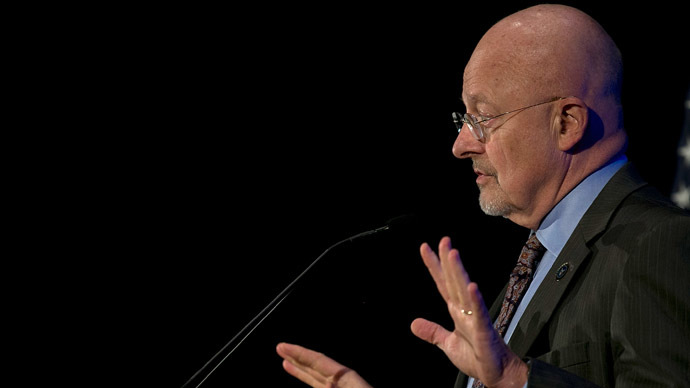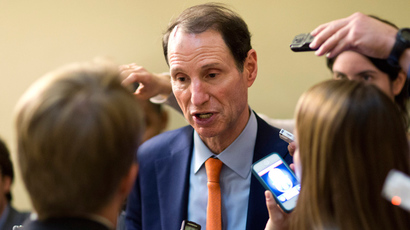Director of national intelligence: Spying debate ‘probably needed to happen’

The United States director of national intelligence said at a conference in Washington on Thursday that the leaking of classified documents by former government contractor Edward Snowden kick-started discussions in America that until then were overdue.
At a trade show in the nation’s capital, DNI James Clapper said that the stream of top-secret national security documents that have been steadily released by Snowden since early June encouraged a debate that should have occurred earlier.
“As loathe as I am to give any credit for what’s happened here, which is egregious…” Agence France-Presse quoted Clapper, “I think it’s clear that some of the conversations that this has generated, some of the debate…actually probably needed to happen.”
According to AFP, Clapper said that “perhaps” a debate regarding the balance between the government’s spy powers and Americans’ privacy should have occurred sooner, and added, “So if there’s a good side to this, maybe that’s it.”
The remarks marked the first time that Clapper — the commander of all 16 US intelligence agencies — even remotely applauded Snowden’s leaks, which in a matter of merely three months have sparked internationalprotests, congressional hearings, lawsuits against the White House and calls for reform, among other action.
Clapper could go back to condemning Snowden soon, though: during his statements this week, the DNI said of the leaks, "Unfortunately, there is more to come.”
The Washington Post, the New York Times, the Guardian, ProPublica and others have all published in part classified files attributed to Snowden that have since the first disclosure on June 5 exposed the inner-workings of America’s vast surveillance apparatus, masterminded by the National Security Agency often under a cloak of utmost secrecy that has only begun to be rolled back by recent media reports based off of those documents.
Glenn Guardian, the Guardian reporter who has disseminated leaked
documents supplied by Snowden, said previously there the trove of
classified information he was provided with contained “dozens” of
newsworthy scoops. The Times has reported that Snowden gave
reporters roughly 50,000 documents which, according to Clapper,
are still being scoured by journalists for potential news pieces
that are still to come.
James Clapper, scoop teasing on NSA disclosures: "there is more to come," http://t.co/L3b80Wc0J3
— Glenn Greenwald (@ggreenwald) September 12, 2013
How does James Clapper know that journalists are planning to make more revelations based on Snowden docs? http://t.co/L3b80Wc0J3
— Glenn Greenwald (@ggreenwald) September 12, 2013
Prior to Snowden’s first leak, Clapper told a congressional panel in March that the US does not wittingly collect any type of data on huge swarms of American citizens. Two weeks after the Guardian and the Post began publishing leaked documents—including those contradicting the DNI’s claims — Clapper issued a formal apology to Senate Intelligence Committee Chairwoman Dianne Feinstein (D-California) to say sorry for his “clearly erroneous” statement.
The Department of Justice has charged Snowden with espionage and other crimes and has asked him to come back to the US to stand trial. He fled America before the first leaked documents were reported on and has since taken refuge in Russia upon receiving temporary asylum.
Earlier this week, Greenwald and the Guardian published a NSA document that had until then gone unreported. In it, the US intelligence office is said to be sharing raw data pertaining to Americans with colleagues working for Israel’s spy agency, suggesting again that the US is not just collecting domestic data, but distributing it among allies for analysis reportedly without perfect privacy safeguards.
The results of an Associated Press/NORC Center for Public Affairs
Research poll released this week reported that a majority of
Americans remain opposed to an array of NSA programs exposed
by Snowden.















